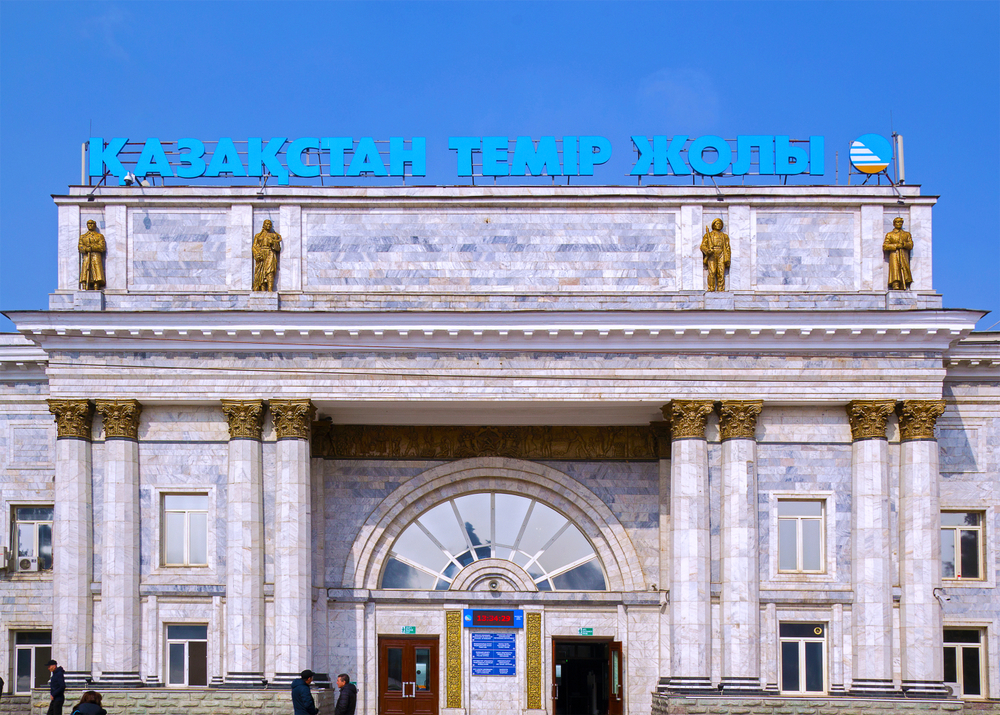Fuel, electricity and labour costs behind new KTZ cargo fee hikes

Higher fuel, electricity and labour costs are forcing Kazakh Railways’ cargo division (KTZ-GP) to increase its prices. Indebted Kazakh Railways (KTZ) is increasing its prices all across the board, to the dismay of the business community.
KTZ is deeply in debt and needs higher income to cover its budget gaps. Even with a fourfold revenue increase and three price hikes in 2023, KTZ still incurred a 675 million euro loss. The company’s outstanding debt currently amounts to nearly 6 billion euros, which it earlier this year referred to as the primary reason for price hikes.
In order to fill the budgetary gaps, KTZ intended to raise its fees for trains carrying mining products earlier this year. After the business community protested, the transport minister killed the plan. KTZ returned to the government with a request to implement a 20,3 per cent TAC increase. Now, KTZ’s cargo division is also upping its prices by an amount that is yet to be specified.
Fuel, electricity and labour
KTZ has now explained its financial situation in greater detail. According to the company, its expenditures on fuel, electricity and labour costs are much higher than expected.
“In the stated estimate of income and expenses for regulated cargo transportation services in terms of tariff traction, costs are at the level of 457.9 billion tenge. And if we compare, the increase in costs amounted to 155.7 billion tenge, that is 51.5 per cent. The key factors for this growth are that we have recorded growth in the main elements of cost – fuel, electricity, wages”, the company’s Economics and Finance Director told Kazakh publication Kursiv.
Calculations did not meet real life situation
The company’s calculations for labour expenses did not coincide with the real world situation. On the labour market, wages have grown by around 50 per cent, but this was not yet reflected in the company’s financial estimates. As KTZ-GP raised wages in line with market developments, the company now has much higher expenses and needs to find compensation for it.
Similarly, the company’s expenditures on fuel exceeded expectations. The actual price for fuel was 15,5 per cent higher than the company estimated. KTZ even paid a higher price than the legally determined maximum retail price in Kazakhstan. According to KTZ, this is because of the need to import fuel from Russia.
Lastly, a new electricity purchasing scheme in Kazakhstan has increased KTZ-GPs expenditures. If KTZ-GP diverges from a predetermined purchasing schedule, it pays up to three times the original price of electricity.
Dissatisfied business
The Kazakh business community is fearful of price increases on the country’s rail network. The director of a Kazakh mining association told Kursiv that the tariff increase should not be higher than the official inflation rate. According to him, the key factors ensuring competitiveness are the predictability of tariffs for railway transportation and their stability in the long term.
Also read:
- Kazakhstan cancels rail freight price hikes after business dismay
- Middle Corridor countries discussing 50% tariff discount
- Kazakhstan to introduce AI and build 5 border hubs by 2030
You just read one of our premium articles free of charge
Want full access? Take advantage of our exclusive offer





